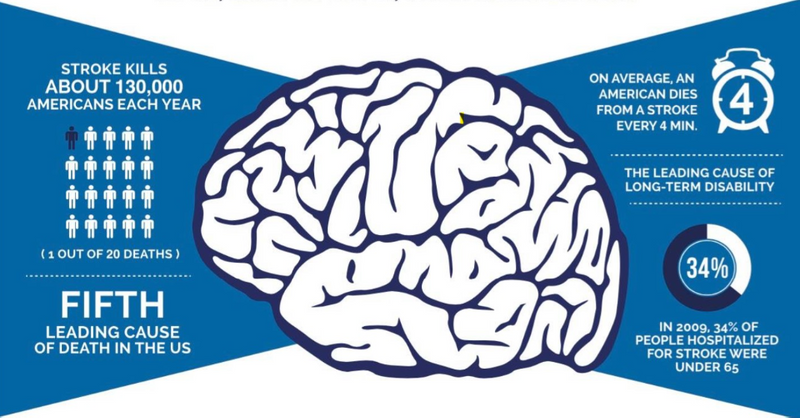What is a Stroke?
A stroke happens when the blood supply to any part of your brain is stopped. Damage to brain cells happens within minutes, so it is important to get medical help immediately.
Mild stroke or TIA (transient ischemic attack)
Blood flow is temporarily interrupted to the brain. Signs and symptoms of this type of stroke last for minutes to hours and then disappear. A stroke is more likely to happen after. It is important to seek care even if symptoms resolve.
Ischemic stroke
Is caused by a blockage or clot in a blood vessel in the brain
Hemorrhagic stroke
Is caused when a blood vessel suddenly leaks or ruptures inside the brain.
Impact of Strokes

Quiz
If you think you or someone you know had a stroke but the symptoms went away should you still see a doctor?
What are the signs of a stroke?
Quiz
Which of these are not a sign of a stroke?
How can I help?
This will be a stressful situation but by reviewing this Byte, you have all the information and tools needed to be calm, clear, and decisive in a way that can save someone's life.
Don’t be afraid to call for Emergency Services
Again, if you’re experiencing a sign or signs of a stroke, call an ambulance. Do not drive yourself or have someone drive you. When you call an ambulance, say that a potential stroke patient is on the way. It allows hospitals to save precious minutes when you arrive. The quicker a stroke patient can receive treatment, the better their chance of recovering from the event.
Quiz
What is the most important thing you have to do if you see someone having stroke symptoms?
Going to the hospital with someone who had a stroke
For family or friends assisting the patient, the following information can help assist health care teams:
Time the patient’s symptoms started or the last time they were well.
A current list of medications being taken including blood-thinners or aspirin.
Allergies to any medication(s) or an iodine-based dye, called contrast, used in CT scans.
Any major medical problems and patient history of trauma, heart disease, or recent surgeries.

Quiz
What percentage of people who have had a stroke are under 65 years old?
How to prevent or reduce the chances of a stroke?
Smoking, high blood pressure, and high cholesterol the main factors that increase your chance of having a stroke.
Like many health concerns, eating healthy foods, exercise, and reducing stress than have a large impact on your health.
Take Action
Is there anything else I should know?
If you are at high risk for a stroke it is important that you and your loved ones take the time to learn the signs. If there is one takeaway from this Byte is that acting fast is the most important thing you can do.
Your feedback matters to us.
This Byte helped me better understand the topic.
